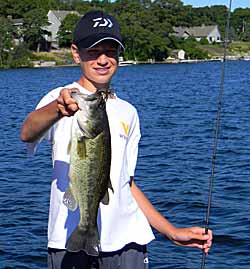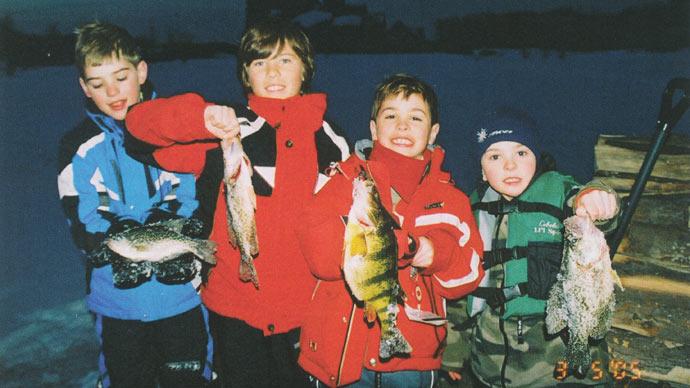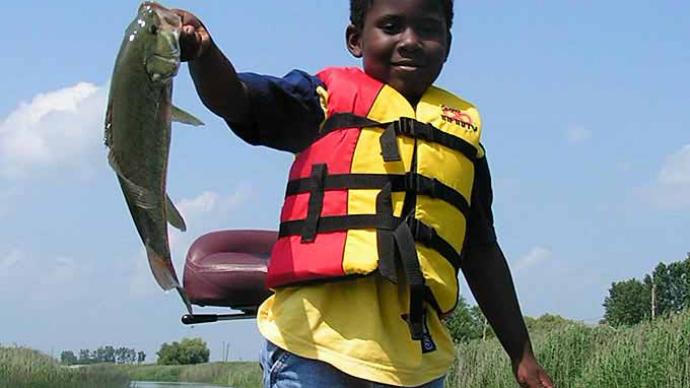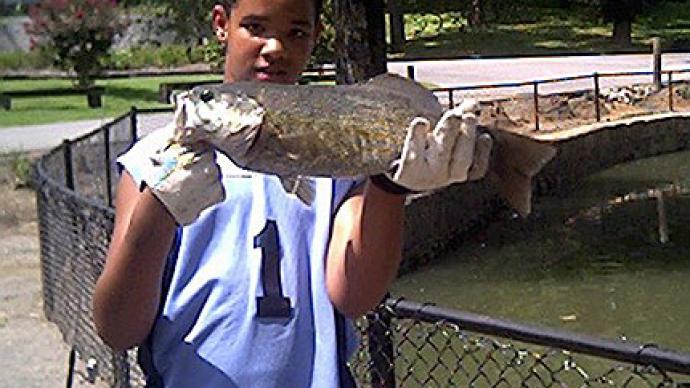
There exist articles about every single aspect of bass fishing. In every corner of the sport, there is something out there that can address what you need help with. Everything from fishing a drop shot to using your electronics to catching fish on the most obscene lures. I believe this is an aspect of the sport that is alive and well and a great resource that should be exploited by anyone who seeks to improve their angling ability.
But there still lacks something, and that is the ushering of a strong and knowledgeable generation of new anglers that will guide and lead our sport in a promising direction. I’m talking about fishermen who fall into that demographic of eighteen or younger, most of whom can’t drive, a lot of whom don’t have a bass boat, and even more of whom look up to the icons of the sport today. I’m one of them, among a group growing each year, contrary to what many may think. So when I hear the tip, “Get on the water as much as possible,” I couldn’t be in more agreement, but for many, that’s impossible to do alone. This article will focus on laying a general guideline on how a younger angler can self-sufficiently build his way up in the sport from a different perspective.
Join a Local Juniors Club/High School Tournament
This is an excellent way to get out, especially for those who otherwise have no way of getting out on the big water. The benefits of Juniors' competition are endless. First, you connect with other fishermen your age, enabling you to talk and go fishing with someone to whom you can relate. It’s great to go fishing with grandpa, but it’s nice to go with guys your age too. Now, the importance of fishing with older, more experienced fishermen is critical as well, and the Juniors Club makes it a great way to go on other fishermen’s boats for a day, ask questions, observe their subtle method, and leave the water with a little more information to apply towards the next tournament.
I have found that what you learn from fellow fishermen, whether they are your age or they are your boat captains, never ends. There is no end to the tunnel, which is the great thing about it. For most, every State Bass Federation, Junior programs are relatively inexpensive and teach etiquette skills. Almost every facet of becoming a better angler can be picked up by fishing the Juniors. For some junior anglers, it is just an excellent way to go fishing; for others, it is an addicting and competitive passion. Either way, it gets you hooked and enables you to get involved in your local fishing community fairly cheaply.
Get a Job
Yeah, that title seems a bit intimidating at first, but when explained, this is one of the best things a prospective club or federation angler can do. Getting a job, even a part-time one, with any company involved in the fishing industry is suitable for both the employer and the employee. Tackle retailers offer an excellent and realistic opportunity, so we’ll focus on those. If you come across other opportunities that are off the wall, see if you can make it happen.
However, it is essential to note that there is a general age cutoff when it comes to this kind of thing, which is usually around the fifteen-year mark. Even at fifteen, some limitations still stick around until sixteen years of age. Nevertheless, getting a job at a tackle retailer has its lion’s share of benefits. Here are just a few:
- It opens doors with storeowners, local and regional representatives from tackle companies, and fishermen. These initial connections could pay off further down the road, and you never know if one day you will get in touch with a company you familiarized yourself with a few years back and that first step you made turns out to pay dividends.
- You acquire skills on all fronts of being a professional, conscientious employee. The retail tackle industry is interesting because it combines fishing skills and knowledge with professionalism and work ethic. You can know this, that, and the other and be the best stick out there, but if you are not conveying a good image to the customer, things won’t work out well.
- You’re in your element. Of course, nothing replaces being on the water, but the next best thing is being in a place that remotely resembles it. Plus, much of the time, you receive some employee discount, which means… you know, more tackle.
Two of the most critical pieces of information I have picked up are a) attention to detail and b) initiative. Unfortunately, teenagers are not always accustomed to exercising these two things in a real-world environment. What I mean by that is any job requires you to be alert and focused on not only doing the job but also doing it well. And these values carry over into other aspects of your life, even fishing. So, you not only learn how to spool reels, replace guides, etc., but also obtain good marketing tactics, work mindsets, and life lessons that can make you a better angler, salesman, and person.
Reach Out
To make your name in the fishing industry, you have to master your local area first. There are no leaps involved in the process of growing as a fisherman. And to help with this process, fishing with experienced anglers is the best way to improve from a skills standpoint. Not only are you improving your mechanics by getting on the water, but also you get to pay attention to the subtle technique that they have mastered over years of trial and error. Again, this ties to attention to detail. But I know what some of you may be thinking, “How can I get one of these guys to want to go fishing with me?” First, if you fish in a Juniors club or join a standard bass club, you will be able to know that the person you are fishing with is responsible and safe. Second, after listing two or three guys you would like to fish with, seventy-five percent of the work is done. You need to contact them, and more often than not, they will be okay with having someone on the back deck while out on the lake. You will often develop a friendship with whomever you ask to go fishing, and one fishing trip may turn into a whole summer of fishing and learning as you go. You cannot beat that. Some days, the guy on the front deck will put on a clinic, and others, you may teach him a thing or two. I think there is a sense of fulfillment from both the mentor and the younger angler. It goes both ways, which is its beauty; the sport is passed from one generation to the next.
Conclusion
I hope I have offered three ways to step your fishing game up a notch as an up-and-comer. Being one myself, I know not all of us can drive, and not all of our boats, but there are ways to work around this. First, joining a junior club has its benefits, and once you are sixteen years or older, joining an adult-level bass club is excellent. Second, getting your teeth cut in the retail and sales industry is a tool that could be helpful in the future. Third, by reaching out to the fishing community in your area, perhaps getting out fishing won’t be as hard as it seems. And one last thing; having respect for more experienced fishermen is a big deal in general, but it is imperative for a person who is just getting their feet wet in this sport. Having confidence is great. It is necessary to succeed, but too much of it may mask the need to show respect for others. All the while, we should realize that most of us fish because it’s all about having fun and getting better, ensuring that years from now, the sport will continue to grow and thrive.



